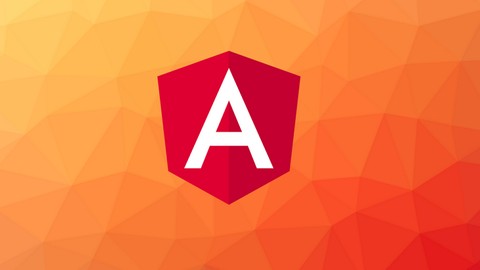
Basics and Advanced Angular 2 Programming Course
Basics and Advanced Angular 2 Programming Course, available at $19.99, has an average rating of 2.7, with 10 lectures, based on 50 reviews, and has 17132 subscribers.
You will learn about Learn Basics Of Angular Setting Up Angular Modules Routing Angular DOM Animation Advanced Angular Programming This course is ideal for individuals who are Anybody who want to learn Angular or Anybody who want to learn Web Development or Anybody who want to learn Programming It is particularly useful for Anybody who want to learn Angular or Anybody who want to learn Web Development or Anybody who want to learn Programming.
Enroll now: Basics and Advanced Angular 2 Programming Course
Summary
Title: Basics and Advanced Angular 2 Programming Course
Price: $19.99
Average Rating: 2.7
Number of Lectures: 10
Number of Published Lectures: 10
Number of Curriculum Items: 10
Number of Published Curriculum Objects: 10
Original Price: $19.99
Quality Status: approved
Status: Live
What You Will Learn
- Learn Basics Of Angular
- Setting Up Angular
- Modules
- Routing
- Angular DOM
- Animation
- Advanced Angular Programming
Who Should Attend
- Anybody who want to learn Angular
- Anybody who want to learn Web Development
- Anybody who want to learn Programming
Target Audiences
- Anybody who want to learn Angular
- Anybody who want to learn Web Development
- Anybody who want to learn Programming
Welcome to my comprehensive Angular course. Angular is a platform and framework for building single-page client applications using HTML and TypeScript. Angular is written in TypeScript. It implements core and optional functionality as a set of TypeScript libraries that you import into your applications.
The architecture of an Angular application relies on certain fundamental concepts. The basic building blocks of the Angular framework are Angular components that are organized into NgModules. NgModules collect related code into functional sets; an Angular application is defined by a set of NgModules. An application always has at least a root module that enables bootstrapping, and typically has many more feature modules.
-
Components define views, which are sets of screen elements that Angular can choose among and modify according to your program logic and data
-
Components use services, which provide specific functionality not directly related to views. Service providers can be injected into components as dependencies, making your code modular, reusable, and efficient.
Modules, components and services are classes that use decorators. These decorators mark their type and provide metadata that tells Angular how to use them.
-
The metadata for a component class associates it with a template that defines a view. A template combines ordinary HTML with Angular directives and binding markup that allow Angular to modify the HTML before rendering it for display.
This course will teach you everything that you need to become an expert from scratch. In this course i will assume that you have no prior knowledge about Angular and by the end of the course you will be at advanced level. This course will guide you step by step so that you will learn basics and theory of every part. This course contain hands on example so that you can understand Angular better. This course contain hands on practical examples without neglecting theory and basics. Learn to use Angular like a professional
Course Curriculum
Chapter 1: Basics Of Angular and Setting Up
Lecture 1: Angular Basics
Lecture 2: Setting Up Environment
Chapter 2: Learn Angular From Scratch
Lecture 1: Modules In Angular
Lecture 2: Data Binding
Lecture 3: Scope and Filter
Lecture 4: Routing
Lecture 5: HTTP Table
Chapter 3: Advanced Angular Programming
Lecture 1: DOM In Angular
Lecture 2: Working On Animation
Lecture 3: Advanced Angular Programming
Instructors
-
XL Teaching
Computer Engineer and It Expert
Rating Distribution
- 1 stars: 17 votes
- 2 stars: 8 votes
- 3 stars: 10 votes
- 4 stars: 6 votes
- 5 stars: 9 votes
Frequently Asked Questions
How long do I have access to the course materials?
You can view and review the lecture materials indefinitely, like an on-demand channel.
Can I take my courses with me wherever I go?
Definitely! If you have an internet connection, courses on Udemy are available on any device at any time. If you don’t have an internet connection, some instructors also let their students download course lectures. That’s up to the instructor though, so make sure you get on their good side!
You may also like
- Top 10 Language Learning Courses to Learn in November 2024
- Top 10 Video Editing Courses to Learn in November 2024
- Top 10 Music Production Courses to Learn in November 2024
- Top 10 Animation Courses to Learn in November 2024
- Top 10 Digital Illustration Courses to Learn in November 2024
- Top 10 Renewable Energy Courses to Learn in November 2024
- Top 10 Sustainable Living Courses to Learn in November 2024
- Top 10 Ethical AI Courses to Learn in November 2024
- Top 10 Cybersecurity Fundamentals Courses to Learn in November 2024
- Top 10 Smart Home Technology Courses to Learn in November 2024
- Top 10 Holistic Health Courses to Learn in November 2024
- Top 10 Nutrition And Diet Planning Courses to Learn in November 2024
- Top 10 Yoga Instruction Courses to Learn in November 2024
- Top 10 Stress Management Courses to Learn in November 2024
- Top 10 Mindfulness Meditation Courses to Learn in November 2024
- Top 10 Life Coaching Courses to Learn in November 2024
- Top 10 Career Development Courses to Learn in November 2024
- Top 10 Relationship Building Courses to Learn in November 2024
- Top 10 Parenting Skills Courses to Learn in November 2024
- Top 10 Home Improvement Courses to Learn in November 2024






















